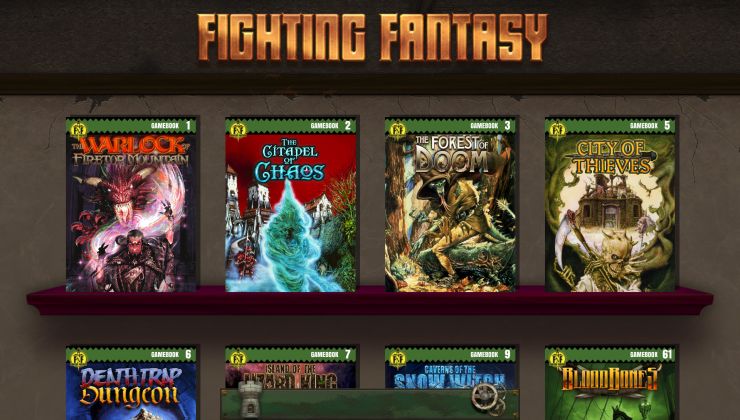After taking on some feedback along with refreshing the graph data today, the User Stats Page now has two different distributions graphs.
The first graph combines all Arch-based and Ubuntu-based distributions, so it's the most accurate graph of the two.
The second is the breakdown between each specific distribution and the spin-offs.
Why do I not include Debian with Ubuntu to have "Debian-based"? Ubuntu is actually quite different package wise to Debian nowadays and Ubuntu has a bunch of spin-offs directly from it. I don't think it's factually fair to lump Debian and Ubuntu together under a debian-based banner.
So, it should satisfy the curiosity of people like me who want to know specifically which spin-off is the most popular, while having the overall and proper distribution graph present first to give the clear overall picture.
I've added some explicit wording to the PC Info section of your User Control Panel to help clear up what people should select too:
Check out the User Stats Page.
Again, if you have suggestions, feel free and if possible (and if time permits) I can implement them. I won't add in all suggestions though of course, as we don't want to completely overload the page.
The first graph combines all Arch-based and Ubuntu-based distributions, so it's the most accurate graph of the two.
The second is the breakdown between each specific distribution and the spin-offs.
Why do I not include Debian with Ubuntu to have "Debian-based"? Ubuntu is actually quite different package wise to Debian nowadays and Ubuntu has a bunch of spin-offs directly from it. I don't think it's factually fair to lump Debian and Ubuntu together under a debian-based banner.
So, it should satisfy the curiosity of people like me who want to know specifically which spin-off is the most popular, while having the overall and proper distribution graph present first to give the clear overall picture.
I've added some explicit wording to the PC Info section of your User Control Panel to help clear up what people should select too:
QuotePlease make sure you select the exact distro you are using, we seperate things like Ubuntu & Xubuntu, Arch & Manjaro etc.
Check out the User Stats Page.
Again, if you have suggestions, feel free and if possible (and if time permits) I can implement them. I won't add in all suggestions though of course, as we don't want to completely overload the page.
Some you may have missed, popular articles from the last month:
All posts need to follow our rules. For users logged in: please hit the Report Flag icon on any post that breaks the rules or contains illegal / harmful content. Guest readers can email us for any issues.
They look pretty sweet. Good job.
0 Likes
Thanks for the update, looks good!
I'd like to suggest the stats page includes some distro/DE icons for the "Click for full stats" entries. Icons to me feel easier to digest than plain old text and numbers.
I'd like to suggest the stats page includes some distro/DE icons for the "Click for full stats" entries. Icons to me feel easier to digest than plain old text and numbers.
1 Likes, Who?
NOOO! What is this, there is mutiny among the GoL members.
Arch was almost in the lead, now look whats happend :(.
Jokes aside, good job with this.
I think its been suggested before, but I woud like to see a Line chart over hardware and software/os version.
Would be a intressting thing to see how the trends are going and if arch will ever make comeback after you ruind it :P.
And maybe an option to choose between bars charts and Line charts, I dont know if line/bar charts is the correct word for it.
But I think you get my point.
Keep it up :)
Arch was almost in the lead, now look whats happend :(.
Jokes aside, good job with this.
I think its been suggested before, but I woud like to see a Line chart over hardware and software/os version.
Would be a intressting thing to see how the trends are going and if arch will ever make comeback after you ruind it :P.
And maybe an option to choose between bars charts and Line charts, I dont know if line/bar charts is the correct word for it.
But I think you get my point.
Keep it up :)
2 Likes, Who?
nice job boss!
:)
:)
0 Likes
Adding in icons in the full stats expanding bit is easy to do, will add that in tonight for you.
1 Likes, Who?
I don't think it's factually fair to lump Debian and Ubuntu together under a debian-based banner.That I agree with, but I am not sure that lumping all Ubuntu spin-offs makes sense either. I would say it only makes sense if they actually use the same repositories. Like how all these Debian flavors are not independent distributions, because they all are different default configurations of the same thing. But something like Mint, is it any closer to Ubuntu, than Ubuntu is to Debian?
1 Likes, Who?
RIP nice looking Arch Linux statistic :( :'(
;)
;)
2 Likes, Who?
I am wondering if pie charts wouldn't look better for these kind of statistics. You could make for example an outline with X-based distributions, with the details pictured in smaller portions, next to another distribution and its descendants.
Last edited by MayeulC on 31 Jul 2016 at 6:07 pm UTC
Last edited by MayeulC on 31 Jul 2016 at 6:07 pm UTC
2 Likes, Who?
Added in the distro icons as requested to the full details bit.
0 Likes
Well SteamOS is debian-based while Manjaro differs more from Arch than Ubuntu spins from Ubuntu. So your grouping seems a bit arbitrary, not that there's a way to both be precise and generic at the same time...
2 Likes, Who?
Well SteamOS is debian-based while Manjaro differs more from Arch than Ubuntu spins from Ubuntu. So your grouping seems a bit arbitrary, not that there's a way to both be precise and generic at the same time...So, it seems Manjaro actually uses it's own repositories if I'm researching it correctly, so technically it should be a distro by itself I think?
As for SteamOS, that's quite important to be kept by itself.
Last edited by Liam Dawe on 31 Jul 2016 at 5:55 pm UTC
0 Likes
Yes, the repo URLs are different but packages are mostly the same but arrive after additional testing and modifications. There are some distinct manjaro-only packages to increase user-friendliness and ease maintenance, e.g. there are currently a whopping 12 kernel branches available to be installed alongside each other.Well SteamOS is debian-based while Manjaro differs more from Arch than Ubuntu spins from Ubuntu. So your grouping seems a bit arbitrary, not that there's a way to both be precise and generic at the same time...So, it seems Manjaro actually uses it's own repositories if I'm researching it correctly, so technically it should be a distro by itself I think?
0 Likes
Manjaro has packages developed for their own OS and you can see the packages on the Manjaro github here: https://github.com/manjaro/. So basically, packages from Arch are synced into Manjaro unstable repository daily without syncing the packages Manjaro built for itself. So basically those packages are the kernels (we support a lot of kernels for the users to choose), mhwd (manjaro hardware detection tool), drivers and the modules, steam, a lot of DE those are only available on AUR in Arch are adopted by Manjaro, a lot of popular packages are also adopted from AUR into packages community repo, themes and artworks, pamac and octopi for the package management, installer, etc. So the conclusion is Manjaro is slowly moving far from being Arch just like Linuxmint is moving from being Ubuntu. Btw I'm one of the linux rt kernel maintainer on Manjaro. :)Well SteamOS is debian-based while Manjaro differs more from Arch than Ubuntu spins from Ubuntu. So your grouping seems a bit arbitrary, not that there's a way to both be precise and generic at the same time...So, it seems Manjaro actually uses it's own repositories if I'm researching it correctly, so technically it should be a distro by itself I think?
Last edited by crazyg4merz on 31 Jul 2016 at 6:17 pm UTC
0 Likes
So essentially, Manjaro is technically a distro by itself now and will move even further away from being "another arch-like" in future?Manjaro has packages developed for their own OS and you can see the packages on the Manjaro github here: https://github.com/manjaro/. So basically, packages from Arch are synced into Manjaro unstable repository daily without syncing the packages Manjaro built for itself. So basically those packages are the kernels (we support a lot of kernels for the users to choose), mhwd (manjaro hardware detection tool), drivers and the modules, steam, a lot of DE those are only available on AUR in Arch are adopted by Manjaro, a lot of popular packages are also adopted from AUR into packages community repo, themes and artworks, pamac and octopi for the package management, installer, etc. So the conclusion is Manjaro is slowly moving far from being Arch just like Linuxmint is moving from being Ubuntu. Btw I'm one of the linux rt kernel maintainer on Manjaro. :)Well SteamOS is debian-based while Manjaro differs more from Arch than Ubuntu spins from Ubuntu. So your grouping seems a bit arbitrary, not that there's a way to both be precise and generic at the same time...So, it seems Manjaro actually uses it's own repositories if I'm researching it correctly, so technically it should be a distro by itself I think?
0 Likes
Actually it was like this since it was first introduced. Mhwd and multiple kernels support was there on day one it released. But for the rest of the packages, we're still using the packages built by Arch Linux. It's just impossible for Manjaro to stop depending on Arch packages entirely because Manjaro is still done by a small number of people. But like I said before, Manjaro repository is growing bigger and bigger because a lot of popular packages on AUR are adopted, and the existance of community edition of Manjaro are getting bigger and bigger. For example deepin and pantheon are not supported by Arch Linux, but the Manjaro community edition made and maintain the PKGBUILD in the community repository. And also Manjaro has the OpenRC support for those who doesn't want systemd, which is not supported by Arch Linux. So now even if we're still using a lot of packages from Arch, but our repository is bigger than the repository of Arch Linux. But fact is fact, we're still based on Arch Linux no matter how big the differences between Arch and Manjaro as time goes by. :)So essentially, Manjaro is technically a distro by itself now and will move even further away from being "another arch-like" in future?Manjaro has packages developed for their own OS and you can see the packages on the Manjaro github here: https://github.com/manjaro/. So basically, packages from Arch are synced into Manjaro unstable repository daily without syncing the packages Manjaro built for itself. So basically those packages are the kernels (we support a lot of kernels for the users to choose), mhwd (manjaro hardware detection tool), drivers and the modules, steam, a lot of DE those are only available on AUR in Arch are adopted by Manjaro, a lot of popular packages are also adopted from AUR into packages community repo, themes and artworks, pamac and octopi for the package management, installer, etc. So the conclusion is Manjaro is slowly moving far from being Arch just like Linuxmint is moving from being Ubuntu. Btw I'm one of the linux rt kernel maintainer on Manjaro. :)Well SteamOS is debian-based while Manjaro differs more from Arch than Ubuntu spins from Ubuntu. So your grouping seems a bit arbitrary, not that there's a way to both be precise and generic at the same time...So, it seems Manjaro actually uses it's own repositories if I'm researching it correctly, so technically it should be a distro by itself I think?
0 Likes
I'll throw an old joke: Ubuntu is an ancient african word, meaning 'I can't configure Debian.'
8 Likes, Who?
It's not really a PC info but I would like to suggest a question á la 'What game shops do you use?'.
Options would be Steam, GOG, Humble Store, Itch.io, Indiegala etc. (multiple answers possible).
With that you would be able to see how popular stores like Itch are compared to Steam :)
Last edited by Lakorta on 31 Jul 2016 at 9:03 pm UTC
Options would be Steam, GOG, Humble Store, Itch.io, Indiegala etc. (multiple answers possible).
With that you would be able to see how popular stores like Itch are compared to Steam :)
Last edited by Lakorta on 31 Jul 2016 at 9:03 pm UTC
1 Likes, Who?
Always wondered if we truly need 64vs32 question. Why does it matter?
0 Likes
Always wondered if we truly need 64vs32 question. Why does it matter?Of course it matters, to any game developer at least. It shows how important it is to build 64bit binaries.
I'll throw an old joke: Ubuntu is an ancient african word, meaning 'I can't configure Debian.'Well here's a new one: I run Mint (and previously Xubuntu) on my desktops because one day, several years past, I found myself bored of configuring Gentoo. Tweaking my system was fun back when that was pretty much all the fun Linux had to offer. I've found other, more entertaining pastimes since.
Debian's an excellent distribution, and my server distro of choice, but please don't be an elitist, even as a joke. It gets old quickly.
1 Likes, Who?
Aw, so few geekos. Well, I guess it makes sense that gamers tend more towards the *buntu side of Linux, as that's what Steam and GoG recommend.
0 Likes











 How to set, change and reset your SteamOS / Steam Deck desktop sudo password
How to set, change and reset your SteamOS / Steam Deck desktop sudo password How to set up Decky Loader on Steam Deck / SteamOS for easy plugins
How to set up Decky Loader on Steam Deck / SteamOS for easy plugins
See more from me